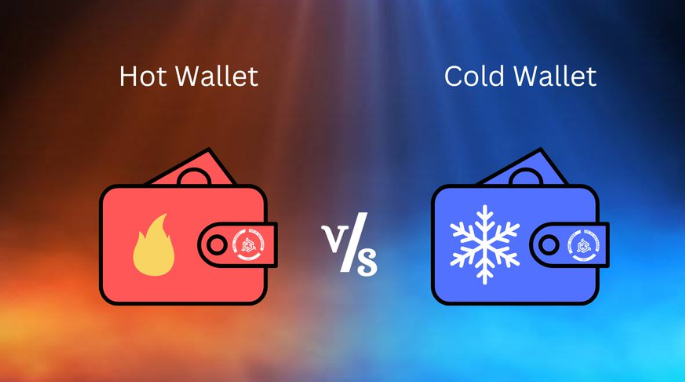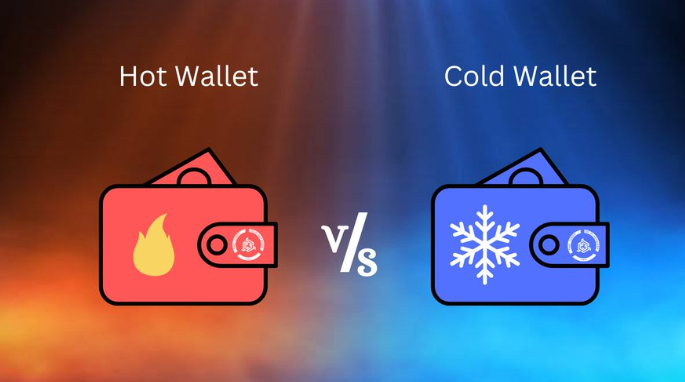Your cryptocurrencies deserve the best protection. Discover why a crypto wallet is your digital fortress.
Understanding Cryptocurrency Wallets: A Simple Explanation

What is a Crypto Wallet?
A cryptocurrency wallet is a digital software program or hardware device that allows you to store, send, and receive digital assets like Bitcoin, Ethereum, and other cryptocurrencies. While the term “wallet” might suggest a physical container for coins and bills, a crypto wallet doesn’t actually hold your cryptocurrencies.
Instead, it stores the private keys that give you access to your coins on a blockchain.These private keys are essentially unique passwords that grant you ownership and control over your crypto assets. Think of a crypto wallet as a secure vault that holds the keys to your digital treasure chest.
Just like a physical wallet holds your bank cards and identification, a crypto wallet stores your digital credentials. However, unlike a physical wallet, a crypto wallet is not a physical object. It can exist entirely within a software application on your computer or mobile device, or it can be a physical device like a USB drive that stores your private keys offline.
The concept of private keys is crucial to understanding how cryptocurrencies work. Each cryptocurrency transaction is recorded on a public blockchain, a decentralized and transparent ledger. However, your private key remains confidential, allowing you to securely access and manage your funds without revealing sensitive information.
In essence, a crypto wallet is an indispensable tool for anyone involved in the cryptocurrency world. It provides a secure and convenient way to manage your digital assets, allowing you to participate in the exciting and ever-evolving world of cryptocurrencies.
How Does a Crypto Wallet Work?
Think of a crypto wallet as a bank account, but for digital assets. When you create a wallet, you’re essentially generating a unique pair of cryptographic keys: a public key and a private key.
- Public key: This is like your account number. It’s a long string of characters that you share with others when you want to receive payments.
- Private key: This is like your password. It’s a highly sensitive piece of information that you should never share with anyone. The private key is what gives you control over your cryptocurrency.
When you send cryptocurrency to someone, you’re essentially transferring ownership of those coins by broadcasting a transaction on the blockchain network. This transaction includes the recipient’s public key, so the network can verify that the coins are being sent to the correct address.
Types of Crypto Wallets
There are two main types of crypto wallets:
- Hot wallets: These are software-based wallets that are connected to the internet. They are convenient for frequent transactions but are more vulnerable to hacking. Examples include mobile wallets, web wallets, and desktop wallets.
- Cold wallets: These are hardware devices that are not connected to the internet. They are considered the most secure way to store your cryptocurrencies. Examples include hardware wallets like Ledger Nano S and Trezor.
Why Do You Need a Crypto Wallet?
- Security: A crypto wallet gives you control over your private keys, ensuring that only you can access your funds.
- Convenience: With a crypto wallet, you can send and receive cryptocurrencies anytime, anywhere.
- Privacy: Many cryptocurrencies offer a higher degree of privacy compared to traditional financial systems.
Choosing the Right Crypto Wallet
When choosing a crypto wallet, consider the following factors:
- Security: Prioritize wallets that offer strong security features, such as two-factor authentication and offline storage.
- Supported cryptocurrencies: Ensure that the wallet supports the specific coins you want to store.
- User interface: Choose a wallet with a user-friendly interface that suits your needs.
- Fees: Some wallets charge fees for transactions.
Tips for Keeping Your Crypto Wallet Secure
- Choose a strong password: Use a combination of upper and lowercase letters, numbers, and symbols.
- Enable two-factor authentication: This adds an extra layer of security by requiring a second form of verification, such as a code sent to your phone.
- Store your private key securely: Never share your private key with anyone. Consider using a hardware wallet for maximum security.
- Be wary of phishing attacks: Avoid clicking on suspicious links or downloading unknown software.
In conclusion, a crypto wallet is an essential tool for anyone who wants to participate in the cryptocurrency ecosystem. By understanding how wallets work and taking the necessary precautions to protect your private keys, you can securely store and manage your digital assets.
Ready to start your cryptocurrency journey?
If you’re interested in exploring the world of crypto trading, here are some trusted platforms where you can create an account:
Binance: A global leader in cryptocurrency trading. -> Join Binance
Bybit: A user-friendly platform for both beginners and advanced traders. -> Join Bybit
BingX: Perfect for those looking to diversify their crypto investments. -> Join BingX
These platforms offer innovative features and a secure environment for trading and learning about cryptocurrencies. Join today and start exploring the opportunities in this exciting space!
Disclaimer: Always do your own research (DYOR) and ensure you understand the risks before making any financial decisions.
Contact for work: datnk710@gmail.com




